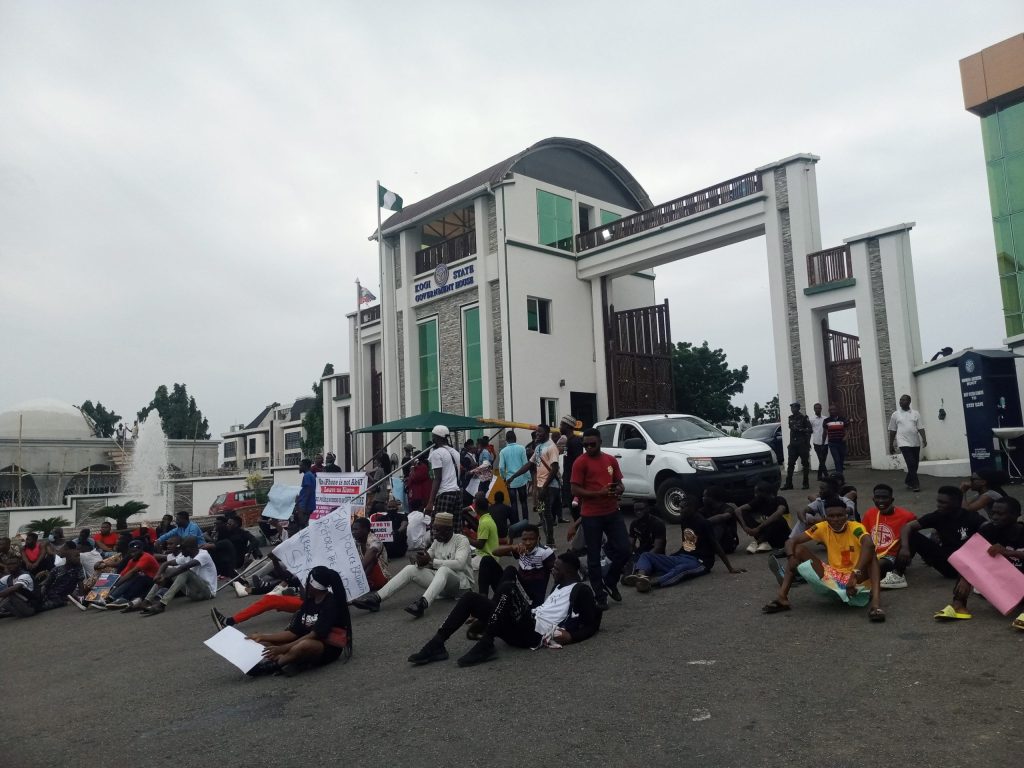INEC Rejects Recall Bid Against Akpoti-Uduaghan

Nigeria’s electoral authority INEC has thrown out a controversial attempt to remove Senator Natasha Akpoti-Uduaghan from office, citing fundamental flaws in the petition’s submission. The decision marks a critical juncture in one of Nigeria’s most watched political battles, blending constitutional procedure with escalating tensions in Kogi State’s power dynamics.
Procedural Flaws in Petition
Officials at the Independent National Electoral Commission confirmed receiving six sealed containers purportedly containing signatures from 250,000 constituents. However, initial inspections revealed critical omissions. Petition organizers failed to provide verifiable contact addresses or certified voter registration documents required by law. “We found only a mobile number and ‘Okene’ listed as the contact address,” stated INEC National Commissioner Festus Okoye. This procedural shortfall automatically disqualified the submission under Nigeria’s 2024 Electoral Guidelines.
Background and Legal Battles
The development follows weeks of political drama stemming from Akpoti-Uduaghan’s suspension from legislative activities. The first female senator from Kogi State had publicly clashed with Senate leadership over seating arrangements. She also leveled sexual misconduct allegations against Senate President Godswill Akpabio. These claims prompted a ₦251 billion defamation lawsuit from Akpabio’s spouse, creating parallel legal battles that now intersect with the recall effort.
Political observers note the recall attempt faces steep constitutional hurdles even if resubmitted. Nigeria’s 1999 Constitution mandates a three-phase process requiring majority voter participation. This threshold has never been achieved since the provision’s creation. “This isn’t just about signatures,” explained constitutional lawyer Ebun-Olu Adegboruwa. “Organizers must physically verify each signatory using biometric systems, then secure majority turnout in a referendum where half plus one voters endorse removal.”

Accusations and Gender Parity
Akpoti-Uduaghan’s camp has dismissed the petition as politically motivated, accusing rivals of weaponizing constitutional processes. “This isn’t grassroots democracy – it’s elite power play using citizens as pawns,” declared campaign spokesperson Oladele Nihi. The senator herself vowed legal action against INEC’s handling of the case during a fiery address to supporters. She is also pursuing disbarment proceedings against Senate Ethics Committee chair Nedamwem Imasuen over alleged prior misconduct.
The controversy has amplified discussions about gender representation in Nigerian politics. Media coverage consistently refers to the senator by her first name while using surnames for male counterparts. Activists claim this practice undermines professional credibility. “This subtle linguistic bias perpetuates systemic inequality,” argued Gender Advocacy Project director Amina Salawe. “Proper nomenclature matters in establishing parity.”
Historical Context and Future Implications
Historical precedents suggest slim chances for recall success. Previous attempts against Senators Dino Melaye and Bukar Abba Ibrahim collapsed during verification stages. They were hampered by logistical challenges and alleged coercion claims. Current requirements demand authentication of over 290,000 signatures from Kogi Central’s 580,000 registered voters. This logistical mountain is compounded by security concerns in the region.
As INEC explores alternative notification methods for petition organizers, civil society groups have deployed monitoring teams across Kogi Central. The electoral body faces mounting pressure to demonstrate procedural rigor amid accusations of partisan influence. With Kogi’s governorship election approaching next year, analysts warn the recall saga could inflame existing tensions in Nigeria’s strategic middle-belt region.
National Judicial Council representatives confirm receiving Akpoti-Uduaghan’s petition against Ethics Committee Chairman Imasuen. The filing alleges concealment of a 2010 New York Supreme Court disbarment related to client fund management. These claims could reshape Senate leadership dynamics if substantiated. Legal experts anticipate prolonged courtroom battles that might outlast the current legislative session.
Grassroots organizations report heightened political mobilization across Kogi Central’s five local government areas. Security forces have increased patrols near critical infrastructure, anticipating potential unrest. The situation remains fluid as stakeholders await INEC’s final decision on potential petition resubmission and brace for protracted legal contests.

